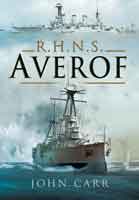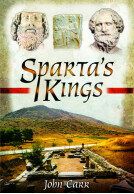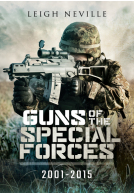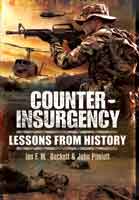The Defence and Fall of Greece 1940-1941 (Paperback)
Imprint: Pen & Sword Military
Pages: 272
Illustrations: 16
ISBN: 9781526781826
Published: 21st July 2020
Last Released: 11th August 2021
(click here for international delivery rates)
Need a currency converter? Check XE.com for live rates
| Other formats available | Price |
|---|---|
| The Defence and Fall of Greece… ePub (7.6 MB) Add to Basket | £6.99 |
On 28th October 1940, the Greek premier, Ioannis Metaxis, refused to accept a deliberately provocative ultimatum from Mussolini and Italian forces began the invasion of Greece via Albania. This aggression was prompted by Mussolini's desire for a quick victory to rival Hitler's rapid conquest of France and the Low Countries. On paper, Greek forces were poorly equipped and ill-prepared for the conflict but Mussolini had underestimated the skill and determination of the defenders. Within weeks the Italian invasion force was driven back over the border and Greek forces actually advanced deep into Albania.
A renewed Italian offensive in March 1941 was also given short shrift, prompting Hitler to intervene to save his ally. German forces invaded Greece via Bulgaria on 6 April. The Greeks, now assisted by British forces, resisted by land, sea and air but were overwhelmed by the superior German forces and their blitzkrieg tactics. Despite a dogged rearguard action by Anzac forces at the famous pass of Thermopyale, Athens fell on the 27th April and the British evacuated 50,000 troops to Crete. This island, whose airfields and naval bases Churchill considered vital to the defence of Egypt and the Suez Canal, was invaded by German airborne troops the following month and eventually captured after a bitter thirteen-day battle. The remaining British troops were evacuated and the fall of Greece completed.
John Carr's masterful account of these desperate campaigns, while not disparaging the British and Commonwealth assistance, draws heavily on Greek sources to emphasize the oft-neglected experience of the Greeks themselves and their contribution to the fight against fascism.
Here is a good read cover to cover which draws you in from page one. The story is of the Italian attack on Greece, the repulsion of this attack and the Greek advance throwing the Italians back through Albania. The subsequent small support by the Allies and the major attack by the Germans is told in not quite the same detail.
Clash of Steel
The political and military aspects, air land and sea, are covered, all as it should be, with a strong Greek emphasis. This is a book about people and most interesting is how the author brings out the characters of some participants and shows what bearing this had on events. The narrative is enriched with quotations and journal entries from the highest politicians to the lowliest soldiers. There are five useful maps and a set of interesting photographs.
The author intended to bring out the ‘actual atmosphere of the defence and fall of Greece’ in this he has succeeded abundantly.
We highly recommend this book to all levels of interest.
Read the full review here
Carr puts the reader into the heat of battle with immense verve, while marshalling the vertiginous torrent of facts and propaganda into clear and orderly prose which is always a pleasure to read. He has evidently visited many of the scenes he describes, which lends physical immediacy to his narrative, and he has studied the Greek and Italian sources with care.
Anglo-Hellenic Review
This is an enjoyable read from John Carr. The book tells the stunning but tragic story of the Greek defence against the naked aggression of the Italians. Things progress very well for the Greeks and they manage to chuck the invaders out of their country into occupied Albania. Unfortunately though, they need support from the British and the growing signs of this can only upset the apple cart. The Germans are in the wings awaiting their moment. We don’t have very long to wait.
www.warhistoryonline.com
This book, quite rightly, is about the Greeks and what they did to defend their country. We see how the army liked to attack, but didn’t like sitting about and really hated retreating. Unfortunately they get to do all three. There is a long look into the Greek psyche and the honest admission that crippling doubt spread like a cancer once the army had finished walloping the Italians.
Solid straightforward history works for me every time. Perhaps that old rascal Alan Clark would have been more honest if he’d looked in Mussolini’s army for his lions and donkeys instead of the Western Front of WW1. While the incompetence of the Italian top brass is often on a borderline epic scale, make no mistake there was heroism a plenty from the ordinary rank and file right up to a good many battalion commanders. They were betrayed by their leaders because the Muppets calling the shots from Rome were a pantomime show of the worst sort.
About John Carr
John Carr has enjoyed a career as a journalist, correspondent and broadcaster (The Times, Wall Street Journal Europe, Vatican Radio), mainly in the Mediterranean and particularly Greece, where he now resides. He is the author of On Spartan Wings: The Royal Hellenic Air Force in World War II; Sparta’s Kings; The Defence and Fall of Greece 1940-41; RHNS Averof; Fighting Emperors of Byzantium; The Knights Hospitaller; The Komnene Dynasty; and Mussolini’s Defeat at Hill 731; he is also the co-author of Philip, Prince of Greece (with Constantinos Lagos) and the translator of Who Really Won the Battle of Marathon? by Fotis Karyanos and Constantinos Lagos, all published by Pen & Sword.



















